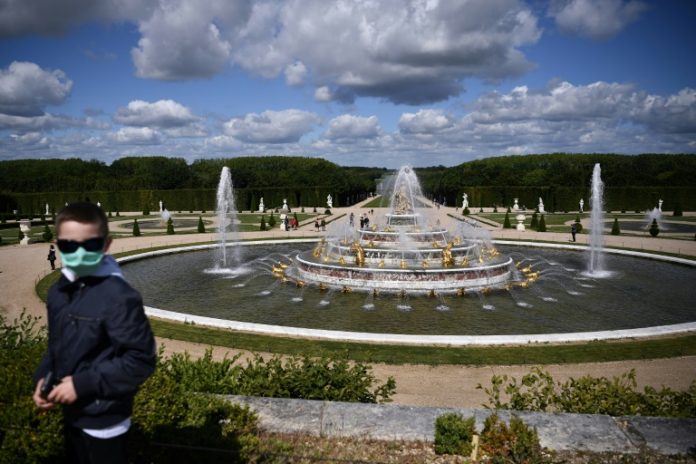The European Union said Wednesday it is hoping to reopen its external borders to foreigners in July as leaders look to loosen the economic strangulation of virus lockdowns that are triggering a steep global downturn.
Europe has suffered devastating human losses from the pandemic, accounting for just under half of the 411,000 lives claimed by COVID-19’s deadly tear across the world.
Now the continent is trying to contain the fallout of a historic recession spurred by restrictions on movement and business that have saved lives but have choked global commerce.
The world economy is on course to contract by at least six percent this year due to virus shutdowns, according to a grim outlook from the Organisation for Economic Cooperation and Development (OECD).
By the end of next year, the loss of income should surpass that of “any previous recession over the last 100 years outside wartime”, the forecast warned.
– ‘Gradual and partial’ reopening –
While EU member states have the final say on border measures, Brussels is suggesting a “gradual and partial” reopening of external frontiers to travellers from outside the bloc starting on July 1, diplomatic chief Josep Borrell said Wednesday.

Beaches and other top tourism sites on the continent have already been prepping for visitors despite deep uncertainty about the future of travel.
In the crisis-hit airline industry, cabin crews and passengers are trying to adapt to new protocols and unpredictable schedules, while European governments are also moving at different speeds to rebuild air links within the bloc.
Marshalling a coordinated plan across the EU may be a challenge, and Home Affairs Commissioner Ylva Johansson said last week that not all countries agreed on the criteria for reopening borders, with some in more of a hurry than others.

Greece, whose economy depends heavily on tourism, has already announced it will reopen its skies from June 15 to a list of countries, including non-EU states such as Australia, China and South Korea.
Austria, meanwhile, said Wednesday it would allow free travel from most European nations in mid-June, but with exceptions for Spain, the UK and several other countries for which testing or quarantines will be required.
And Germans will be free to travel to EU member states on Monday, though the country has decided to extend its warning against travel outside the EU until August 31.
– Second wave fears –
As barriers to movement start to lift, the virus is still gaining ground in countries around world, particularly in Latin America which has logged more than 1.4 million cases and nearly 70,000 deaths.
The WHO’s regional arm, the Pan American Health Organization, has warned that upcoming hurricane season could further hamper the fight against the virus.
Worst-hit Brazil is leading the continent with the world’s third highest death toll — 38,400 — after the US and Britain.
Peru is also battling a steep surge, with more than 200,000 infections making it second only to Brazil.

And in Nicaragua, which has not taken robust steps to contain its outbreak, at least eight public health doctors were sacked for criticising the lack of a serious response by the government of President Daniel Ortega, an independent medical body said.
Elsewhere around the globe clusters of infection growing as governments relax restrictions, with the WHO warning that complacency remains an enormous threat.
Iran announced more than 2,000 new cases Wednesday as part of a recent surge that the government attributes to increased testing.
Indonesia also posted a record number of 1,241 new coronavirus cases, sparking calls from health experts for the world’s fourth most populous country to slam the brakes on easing its lockdown measures.
In India’s capital New Delhi, authorities said they expect half a million COVID-19 cases that will need 150,000 hospital beds by mid-July.
“I will personally be working on the ground to ensure that stadiums, banquet halls and hotels can be converted to accommodate patients,” said Delhi’s Chief Minister Arvind Kejriwal.
Meanwhile in China, where the virus first emerged late last year, wildlife activists celebrated a victory after authorities decided to remove pangolin parts from its official list of traditional medicines.
The endangered and heavily-trafficked animal, which lives in Africa and Asia, is thought by some scientists to be the possible host of the novel coronavirus that emerged at a market in China’s Wuhan city last year.
Source – AFP
















